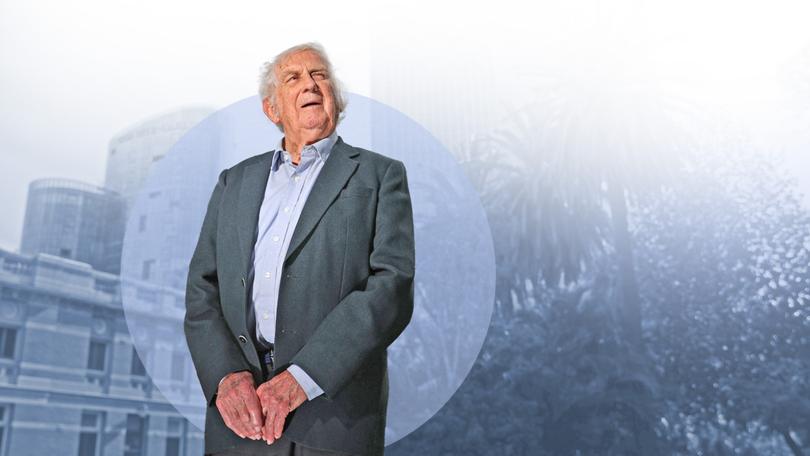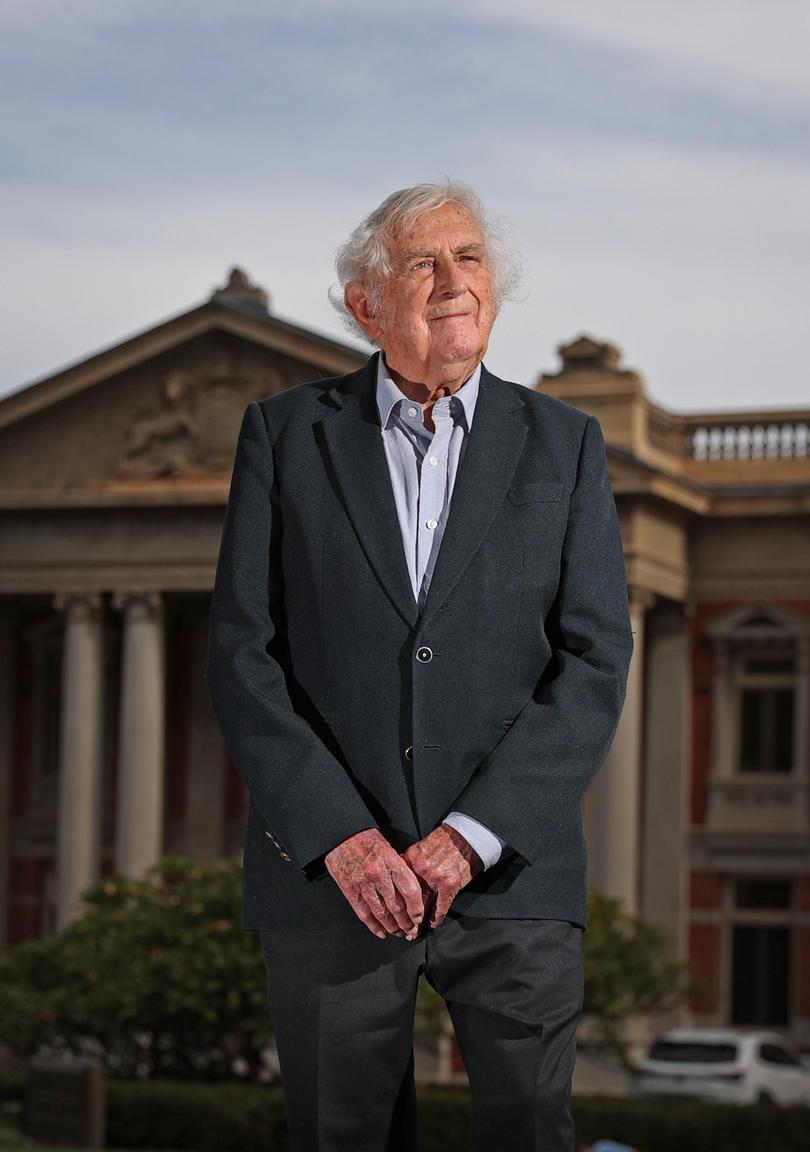BEN HARVEY: Politicians could learn a thing or two from listening to Australian historian Geoffrey Blainey
BEN HARVEY: Australian politicians searching for a way forward in the new realpolitik of international diplomacy would do well to find a copy of historian Geoffrey Blainey’s latest address.

“Those who cannot remember the past are condemned to repeat it.”
“History is not a burden on the memory but an illumination of the soul.”
“A generation which ignores history has no past and no future.”
Sign up to The Nightly's newsletters.
Get the first look at the digital newspaper, curated daily stories and breaking headlines delivered to your inbox.
By continuing you agree to our Terms and Privacy Policy.“History is a vast early warning system.”
There is no shortage of quotable quotes about the importance of appreciating the past.
Geoffrey Blainey would know most of them off by heart.
At the age of 95, Australia’s pre-eminent historian has lived a fair portion of his favourite subject.
Through works such as The Tyranny of Distance, Triumph of the Nomads and The Story of Australia’s People, Blainey has pinpointed Australia’s place in the world at different times.
A recent keynote address he delivered in Perth suggests the custodian and curator of this country’s historical record is now less certain about Australia’s place in the swirl of geopolitics.
If he is sure of anything, it’s the need for Australian leaders to understand they cannot go it alone.
“Our history tells us something very simple,” he told the Mannkal Economic Education Foundation event.
“We, whether we like it or not, must have an ally. If we’re going to have an ally, we have to pull our weight.
“At the moment, Australia’s defences are not very strong. Kim Beazley . . . said quite recently that Australia’s defences are in an unenviable position, and I respect his remarks.”
Blainey has never been one for shrill outbursts and his speech was delivered in the sober language befitting a storied academic.
Even then, his thoughts were sobering.
“People keep on asking a question that’s so difficult to answer. Will there be another world war?
“The news in Ukraine and the news in the Middle East is often disturbing, and quite understandably, so many people, not only in Australia, but in most countries of the world, wonder if this is a precursor to a third world war.
“I’m inclined to think it is not, but one can’t be sure.”
Mr Blainey noted there had been two trigger points for a third world conflict — the Cuban missile crisis of 1962 and Russia’s defeat in Afghanistan in 1989.
“I think of those events and they have some similarity to the situation facing us today,” he said.
“We just can’t be sure.”

Blainey was speaking well before Donald Trump let loose his dogs of trade war. This week’s tariff roller-coaster ride made the following observation about America being guided by self-interest even more prescient.
“When it came Christmas Day, 1941, Mr (John) Curtin said ‘on behalf of Australia, I call on the United States to be our help, rather than Britain in the crisis we face’,” Mr Blainey said.
“We like to think, and we’re often told, that Mr Curtin’s message was heeded; we invited the United States to defend us, and they came.
“It’s not true. We didn’t have that power. The United States had already arrived … nine days before Mr Curtin wrote that plea for help.
“A United States small fleet arrived in Brisbane and began to unload its cargo. We didn’t bring the United States here. We didn’t say ‘please help us’ and they came.
“They came because, sensibly, they realised they needed a forward base, a launching pad from which eventually they can begin to recapture all the islands taken over by the Japanese.
“It’s so important that we remember our history accurately. We didn’t have the power to bring the United States here.
“They came here sensibly to suit, quite rightly, their own interests and ours.”
Mr Blainey warned that even the strongest alliances were tested by the vagaries of politics and economics.
“We should realise that we can in a crisis ask for help from our greatest ally at present, the United States, but it might not be able to help us at the time when the help is needed,” he said.
“A nation needs to be able to defend itself if it’s impossible to get help from an ally at the time it’s needed.”
He ended his speech with an unexpected defence of Donald Trump.
“This has to be said about Mr Trump, that in his first presidency, despite all the statements he made, he was very successful in military affairs,” Mr Blainey said.
“I think that we shouldn’t be too hard on the strange statements he’s been making.
“One remarkable thing has happened which people thought was impossible the day he entered the White House this year, they thought it was impossible that Europe would pull its own weight in defending itself.
“And here, almost miraculously, it looks as though France and Germany and Britain and the main European countries will decide for the first time in three quarters of a century that they will try to pull their weight in defending themselves against Russia, or, if necessary, against China.
“Despite all the strange words that come from him this, if it happens, will be an astonishing achievement.”
Australian politicians searching for a way forward in the new realpolitik of international diplomacy would do well to find a copy of Blainey’s address, if only to remind themselves that while history doesn’t always repeat itself, it has a tendency to rhyme.

